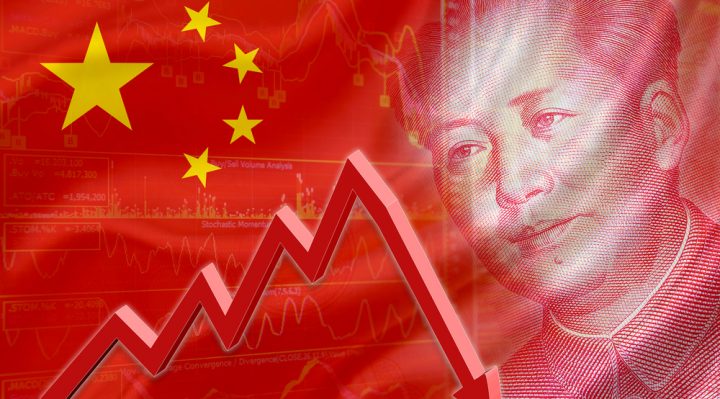April data is bringing worries to Beijing as the Chinese economy is showing signs of a slowdown. A booming property market in China is already creating troubled for the policymakers. Unrestrained credit growth and a slowdown in manufacturing sector has made the world’s second largest economy sweat. Though the first quarter of 2017 was extremely positive with a 6.9 percent growth rate, things may change very soon. Economists are expecting a slowdown as the Chinese economy shifts to a consumer-driven model.

No More Expansion for China?
Debt fuels China’s economy. Lately, the policymakers have tried to shift their focus to a consumer driven economy. A property boom in China is creating an asset bubble that could burst soon. However, the question here is not ‘how soon’. The question is ‘to what extent’. We know that a burst in this bubble could have a major impact on Chinese growth.
Debt-fueled model has stopped providing further growth to the Chinese dream. It has led to a widespread credit crisis. Two recent surveys are showing China’s slow growth story. The official PMI by National Bureau of Statistics shows troublesome results. After the factory activity hit a 5- year high in March at 51.8, April numbers have crashed to 51.2. The Economists predicted a slowdown but expected factory activity to remain around 51.6. Chinese government also released its PMI reports for the services sector, showing a steeper fall. While the index was at 55.1 in March, it has now gone down to 54.0 in April. This sector will have to buckle up for growth if the goal of a consumer-driven economy is to be met.
Will the Change Demand More From the Chinese Economy?
A shift to a consumer driven economy would mean more production by the small businesses. Commerzbank economist Zhou Hao, pointed out that demand has not changed in China. Because of this, the robust factory output growth of the previous months could not be sustained. The Chinese authorities have also started to deleverage the economy, which is impacting growth further.
With strict regulations and a tightening monetary policy, the economy could face discomfort. After all, it has been skyrocketed by debt for years now. The shift created turbulence in the stock market for quite some time in 2016. The transitioning economy not only has to improve its output, but also improve demand. This has proven to be very challenging for the government, especially as debt rates are going beyond control.
Nomura economist Zhao Yang suggested that the economy will continue a slump for the rest of the year. He said that there are downward pressures on the economy which will be reining supreme in 2017 amidst changing circumstances. The fate or direction of the transition could be decided in autumn.
Anthony Young
Latest posts by Anthony Young (see all)
- Samuel Nathan Kahn (Manchester, UK) – Fit to Run Finance Firm - July 31, 2021
- Quarashi’s Ticks the All the Right Boxes… Anonymously - July 16, 2021
- JETT Lifts Off in Miami Launch - July 16, 2021






